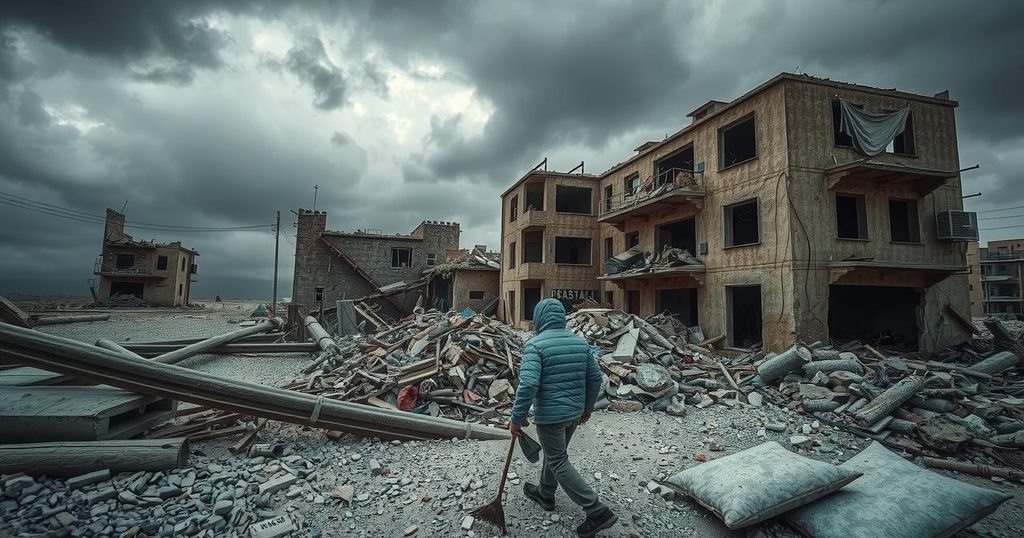Civilians in Conflict Regions Face Escalating Humanitarian Crises
- Civilians in Gaza face starvation as violence escalates.
- OCHA warns about growing humanitarian needs in Gaza.
- WFP reports one in three people in Gaza are without food.
- Fuel shortages in Gaza threaten critical access to services.
- UN raises alarms over extreme humanitarian conditions in Sudan.
- Wildfires in Syria prompt urgent assistance by UN teams.
- Haiti’s humanitarian response is critically underfunded in 2025.
- Ukraine suffers hundreds of casualties amid recent strikes.
Growing Humanitarian Emergency in Palestinian Territory
Crisis in the Occupied Palestinian Territory Amid Growing Humanitarian Emergency The situation in the Occupied Palestinian Territory, particularly in Gaza, has become increasingly dire as an OCHA report reveals civilians are facing deadly violence and severe starvation. According to reports from humanitarian partners, many Palestinians were killed recently while searching for food amidst the middle of ongoing hostilities and constant attacks. The World Food Programme (WFP) has highlighted a staggering reality: nearly one in three individuals is now going days without food, elevating the risk of starvation to alarming levels. Last week, WFP’s Deputy Executive Director, Carl Skau, witnessed the grim realities in Gaza City firsthand. He described the conditions as unimaginably desperate, emphasizing, “People are dying just trying to get food.” One poignant story shared by Skau involved a mother who fainted at a kitchen where she hoped to find a hot meal for her children. The gravity of the crisis is underscored by the reports of hospitals overwhelmed by injured civilians seeking assistance. OCHA reiterates the dire need for the Israeli authorities to open all available crossings and facilitate humanitarian access, which is essential for the protection of civilians in line with international humanitarian law. Fuel shortages have further compounded the crisis, with hospitals rationing supplies and reports warn that Gaza could experience an imminent Internet blackout due to this dire fuel shortage.
Challenges in Providing Aid in Gaza
OCHA’s Call for Action in Gaza’s Humanitarian Situation Compounding the humanitarian catastrophe, the Israeli authorities have not allowed any fuel into Gaza for four consecutive months, which means life-saving services are running dangerously low. Without fuel, ambulances cannot operate, hospitals struggle with energy shortages, and access to clean water has become increasingly scarce, creating a dire humanitarian crisis. The humanitarian teams within Gaza continue their efforts but have faced significant barriers, with a recent three out of eight coordination attempts denied by the Israeli authorities, limiting their ability to aid those in desperate need. The situation for displaced families continues to deteriorate with recent displacement orders impacting areas in Khan Younis, where over 50,000 are now affected, including hospitals and vital water sources. The United Nations estimates that since the ceasefire ended in March, more than 700,000 people have already been displaced in Gaza, creating significant overcrowding in areas like Al Mawasi. Women, who bear the brunt of the crisis, report increased mental health challenges, including anxiety and depression, amid the scarcity of food and resources.
Ongoing Global Crises Demand Urgent Action
Global Humanitarian Efforts Stretched Thin Across Multiple Regions In Syria, the UN and its partners have mobilized to address the devastating wildfires in Lattakia. OCHA’s announcement highlights the solid commitment to provide assistance following the catastrophic fires that ravaged over 60 communities, displacing hundreds of families. Meanwhile in Sudan, the Under-Secretary-General for Humanitarian Affairs has emphasized the urgent need for humanitarian access in besieged El Fasher, where civilians are at risk of starvation. Moving to Myanmar, communities are still grappling with the aftermath of the earthquakes, and while aid has reached a million people, ongoing funding issues and access barriers prevail. In Haiti, the situation remains critical as the influx of deported migrants adds pressure on an already strained humanitarian response system. Droves of families arriving at Belladère face dire conditions, with the ongoing underfunding of the humanitarian response exacerbating challenges. Lastly, in Ukraine, recent attacks have left dozens dead, further stressing the humanitarian responders who are rushing in to provide essential aid. Drones and strikes across urban areas have caused significant casualties, leaving organizations scrambling for resources to assist the victims.
The humanitarian crises across various regions including the Occupied Palestinian Territory, Syria, Sudan, Myanmar, Haiti, and Ukraine paint a grim picture of the challenges many face. As access to essential services dwindles and funding remains critically low, the international community must prioritize immediate and sustained humanitarian efforts to alleviate suffering. Regional authorities are urged to facilitate aid access, ensuring the delivery of vital assistance to those who need it most—before it’s too late.




Post Comment